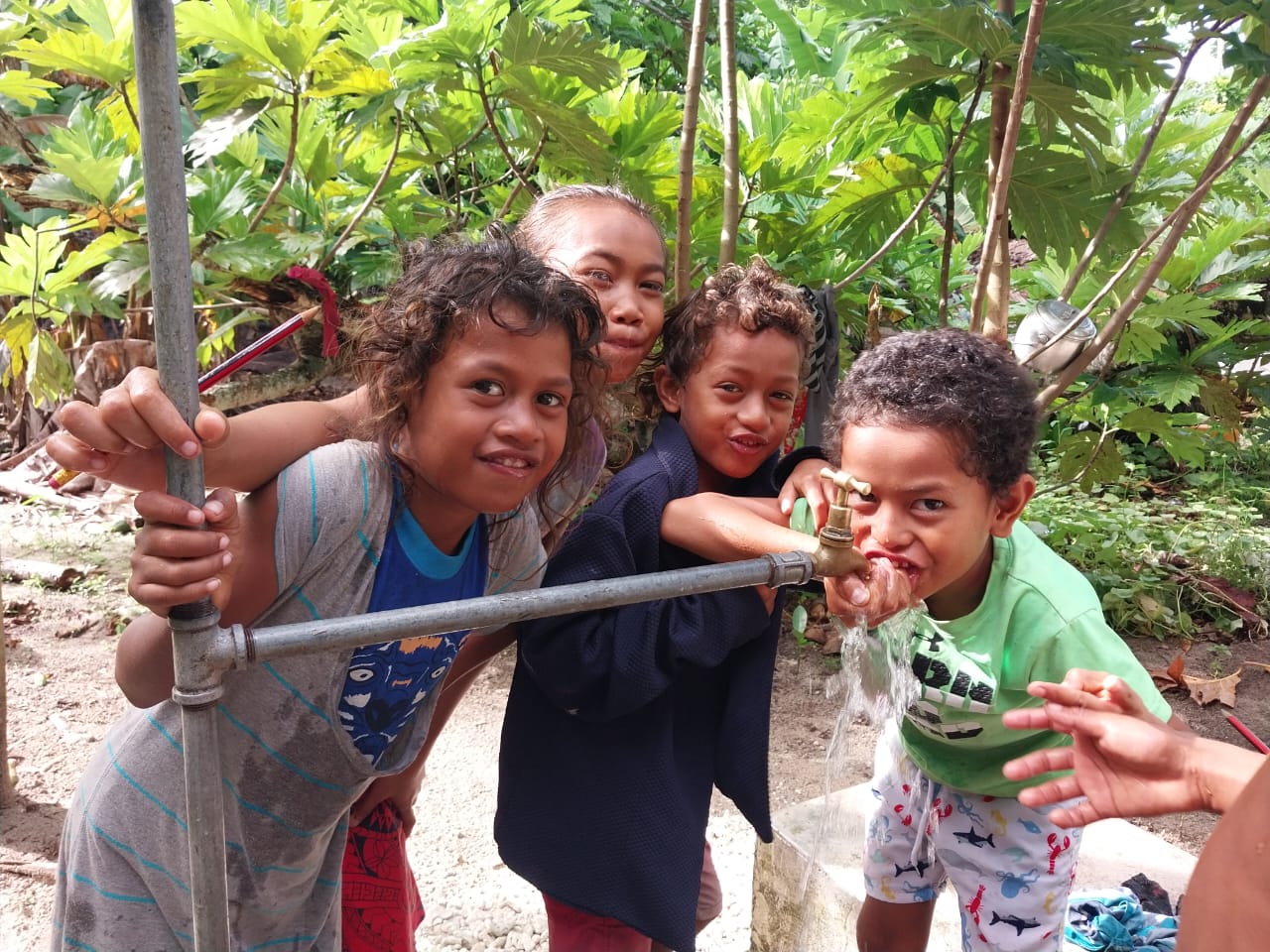
Five communities on Tikopia Island in Temotu Province now have access to clean piped water, thanks to the Small Grants Programme funded by the Global Environment Facility (GEF) and administered by UNDP in the Solomon Islands.
After more than two decades of hardship and limited access to clean water, the communities—four in the Faea District and one in the St. John Community of Ravenga District—are celebrating a solution to their water challenges.
The newly completed St. Luke Community Faea Water Project, which began in June 2023, marks a transformative moment for these beneficiary communities on the remote Polynesian outer island.
Through the construction of two water dams and a network of 31 standpipes, families totaling 576 people now enjoy reliable access to clean water for drinking, cooking, and washing—right at their doorsteps.
“This project has relieved one of our longest-standing burdens,” said Mr. Pae Seivaea, Chairman of the St. Luke Community.
“For years, we had to carry water long distances—mothers, children, everyone. Now, clean water is right in front of our homes. It is truly changing our daily lives.”
Tikopia is one of the outer islands of Temotu Province and one of the most remote territories in the Solomon Islands. With a population of around 1,200 people, residents live in 20 villages spread along the coast.

Group photo of UNDP staff and school students; Photo credit: UNDP
Due to its isolation, service delivery by the government is challenging. Despite its modest size, Tikopia is renowned for its rich cultural heritage and strong communal traditions. Its lush environment supports a subsistence lifestyle largely based on fishing, gardening, and cultivating crops such as taro, bananas, and coconuts.
For over 20 years, these communities relied on rainwater collection and a damaged water system built in the early 1980s. Continuous use of this system led to its deterioration, reducing it to a single standpipe that often runs dry. Periods of drought, intensified by climate change, frequently left families scrambling for water, exacerbating the social and economic vulnerabilities of this cyclone-prone and geographically isolated island.
A statement from UNDP noted that the completion of the project reflects UNDP’s commitment to community-driven development in the Solomon Islands and the Pacific region, and that it will directly contribute to improving the resilience and well-being of local populations.
UNDP Team Leader for Resilience and Climate Change, Barnabas Bago, praised the dedication of the local community in completing the project.
“This is your success,” he said.

Mother and son utilizing the new pipe from SGP water project in Tikopia; Photo credit: UNDP
“Water is life. It is a vital resource for human survival, and too many communities in the Solomon Islands still live without reliable access to clean and safe drinking water. You are fortunate, and you’ve earned it through your hard work and partnership with relevant stakeholders.”
Mr. Bago emphasized how the project aligns with both national and global development goals, including the Solomon Islands National Development Strategy Objective 2: Poverty alleviation, addressing basic needs, and improving food security across the country; and the UN Sustainable Development Goal 6: Ensure availability and sustainable management of water and sanitation for all.
The project is funded by the Global Environment Facility (GEF) through the Small Grants Programme (SGP), which supports community-based initiatives worldwide.
It empowers local organizations to implement practical solutions for climate change adaptation and disaster risk reduction, contributing to sustainable development and an improved quality of life.
As the communities of Tikopia turn on their taps with pride and relief, the success of the Faea Water Project stands as a powerful example of how local action, with the right support, can create lasting change and impact within communities, even in the most remote places.
